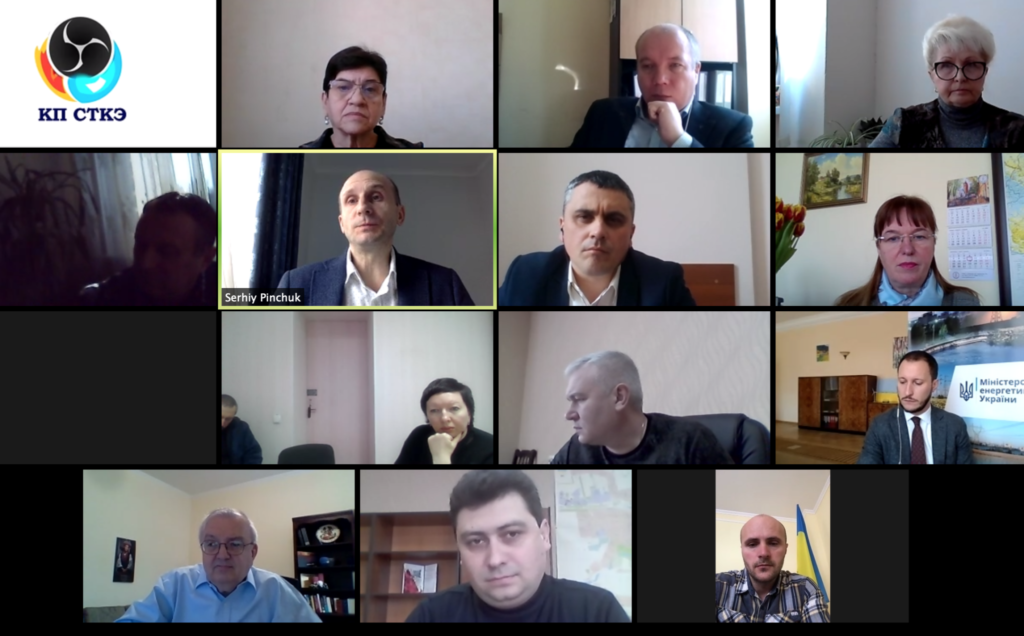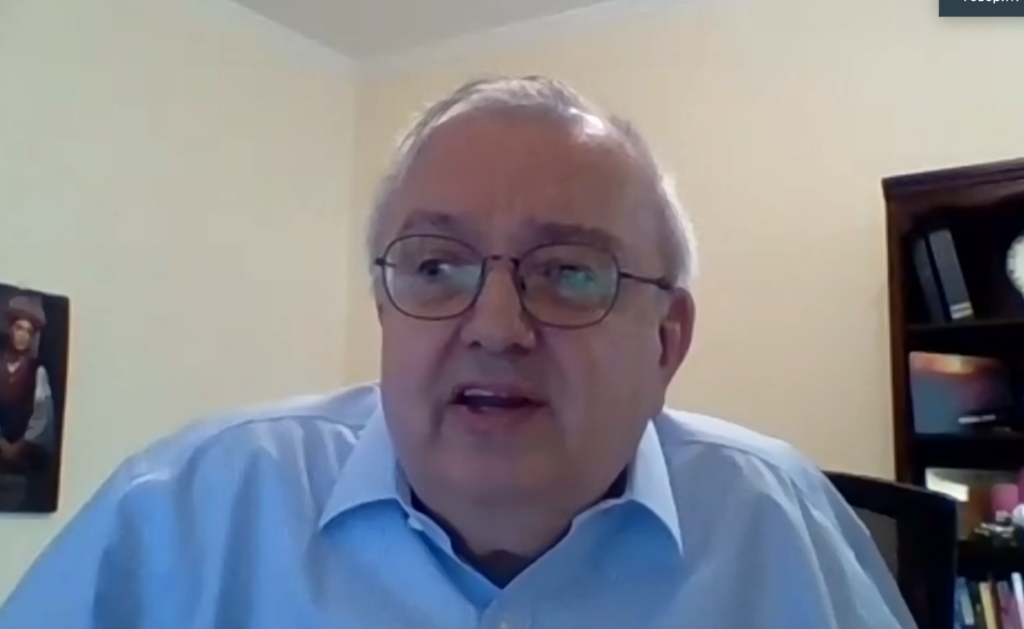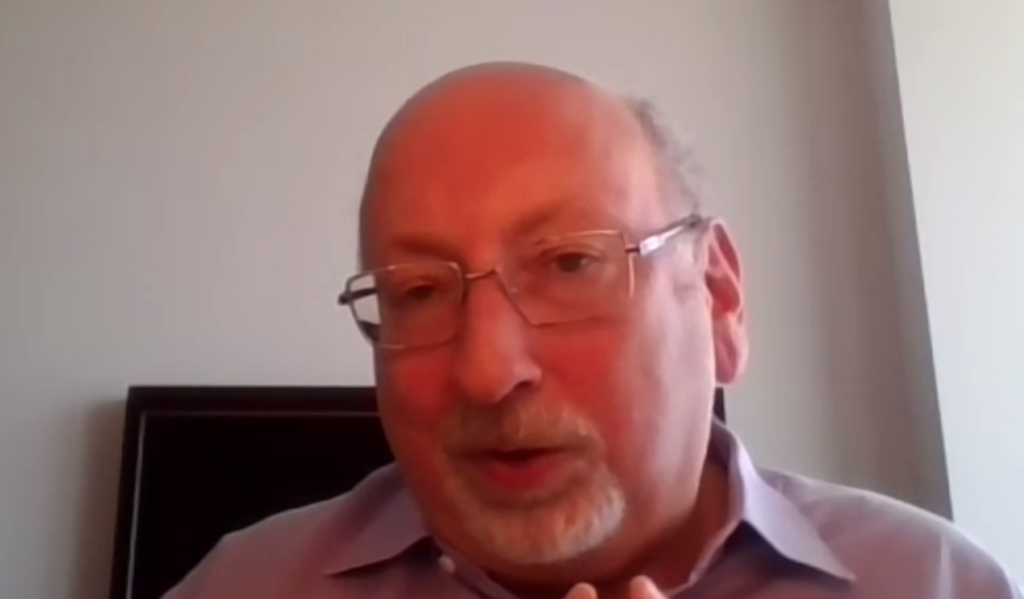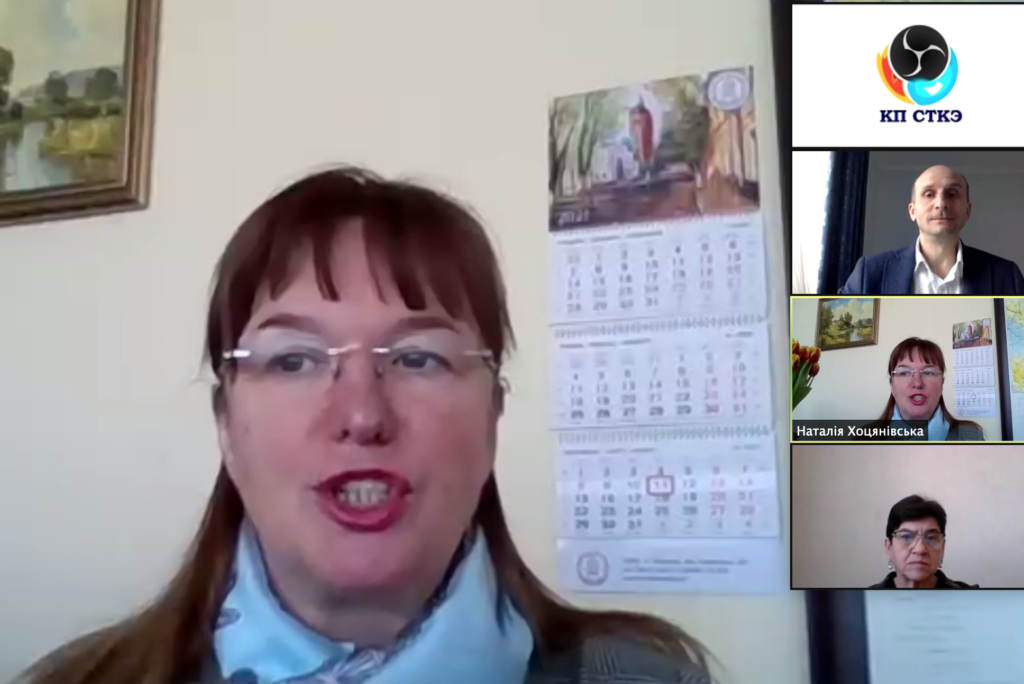In partnership with the Ministry of Communities and Territories Development of Ukraine (MinRegion), the USAID Energy Security Project (ESP) led an online seminar on “Conditions for District Heating Companies’ Operations after the PSO for Gas Market Entities is Lifted” on March 11 and 12, 2021. The two-day seminar was attended by 550 representatives of district heating companies (DHCs) and local governments, which are responsible for supplying heat to communities.

The event aimed to help DHCs and local governments ensure an efficient heat supply on the open gas market, because starting May 1, 2021, public service obligations (PSO) will be completely lifted. A PSO on NJSC Naftogaz of Ukraine currently guarantees the supply of natural gas to DHCs even if they have significant debts, does not oblige them to balance gas consumption, and provides a guaranteed price and preferential payment terms (no requirements for financial security, post-payment) for natural gas transportation and supply services. When the PSO lifts, all these benefits will end and DHCs will face the same conditions as industrial customers, which will create many challenges for them.

Sukru Bogut, Senior Energy Advisor of USAID/Ukraine, told the seminar participants that “lifting the public service obligation on Naftogaz and ending the gas supply at a subsidized price to municipal utilities is a logical and necessary step to eliminate market distortions and to comply with the EU Third Energy Package,” which will help create competition in the Ukrainian gas market and promote the development of a regional gas hub in Ukraine. Mr. Bogut is convinced that in the long term, competitive gas market development will have a positive impact on the district heating sector. However, he noted that in the short term, challenges will require careful analysis and mitigating measures to preserve DHCs’ financial and operational capacity.

Dean White, USAID ESP Chief of Party, said that the district heating sector in Ukraine has about 1,400 companies and provides heating to 4.9 million households. It also accounts for about a quarter of total gas consumption in the country, so its importance cannot be underestimated. “To improve district heating services in Ukraine, ESP is working with local governments and utilities to upgrade infrastructure, increase efficiency, reduce gas consumption and reduce consumer costs. ESP seeks to create open and competitive energy markets and increase the resilience of energy supply by encouraging Ukraine’s broad economic development.”
During the seminar, participants received information on how heat supply companies’ operating conditions will change after the PSO is lifted, principles of gas market operation for non-household consumers, the practice of purchasing gas on organized trading platforms (exchanges) in the European Union, opportunities for DHCs to buy gas on the Ukrainian Energy Exchange, terms and conditions of gas transportation, the role of the supplier of last resort in the gas market, legislative initiatives on heat supply such as tariffs and energy payments on the open natural gas market, cooperation between NJSC Naftogaz of Ukraine and heat supply companies, and the regulation of heat supply companies under the new conditions.
It was particularly valuable for participants to hear different perspectives – in addition to representatives of USAID/Ukraine and USAID ESP, speakers came from MinRegion, the Ministry of Energy, the European Federation of Energy Traders, Axpo Ukraine, the Ukrainian Energy Exchange, the Gas Transmission System Operator of Ukraine, the National Securities and Stock Market Commission, the National Energy and Utilities Regulatory Commission (NEURC), Naftogaz Group, and Poltava-Teploenergo.
Speaking about the expected changes, USAID ESP expert Artem Kuznetsov warned that DHCs and local governments should analyze their financial and organizational readiness to purchase gas in the absence of the PSO. He said that priority should be given to DHCs’ organizational readiness, the need for working capital, opportunities for DHCs to receive money owed, and potential support from the municipalities.
“Under the conditions of a free market, heat supply companies will not have guarantees of gas supply. This will require a 100 percent level of payments or even prepayment for gas consumed. DHCs will have to be more careful in forecasting consumption and balancing and will have to address imbalances. In such conditions, companies will look for optimal sources to purchase gas, taking into account not only the price but also the payment terms – the supplier mark-up will depend on many factors and may be significantly higher than Naftogaz’ current 1.9 percent under the PSO,” explained Mr. Kuznetsov.
Deputy Minister of Energy of Ukraine for European Integration Yaroslav Demchenkov named limited competition among natural gas suppliers as one of the biggest risks DHCs face after the PSO lifts, as well as a lack of transparent rules (in the form of a standard contract) and DHCs’ failure to make full gas payments due to a lack of working capital.
Svitlana Chernykh, head of NEURC’s Department for Regulation of Relations in the Heat Supply Sector, informed participants that energy components make up the lion’s share – 72.63 percent – of the weighted average tariff structure for heat energy for households. Energy components include fuel cost, purchased heat energy, the cost of heat production at combined heat and power plants, cogeneration units, and the cost of electricity, water supply and sanitation.
Speakers repeatedly mentioned the value of debts in the sector: UAH 63 billion owed to Naftogaz by DHCs and UAH 24.1 billion owed to DHCs by the population.
“It is impossible to operate in market conditions with such a huge amount of debt. And in addition to the amount of the debt itself, there are also fines and penalties, for which there is no money,” said Natalia Kravchenko, Director of the Department of Economics of Life Support Systems of MinRegion. She considers it absolutely necessary to restructure the debts of both DHCs and the population.

Deputy Minister of Communities and Territories Development Natalia Khotsianivska assured listeners that MinRegion understands that the market will not work properly without solving the problem of DHCs’ debts to Naftogaz. She expressed concern that in the current situation, “after the PSO lifting, there will be risks to the operation of heat sector companies,” and said that MinRegion is working with all stakeholders to find a solution.
Ms. Khotsianivska also informed participants that MinRegion is initiating a PSO extension for another year, until May 1, 2022, so that DHCs are better prepared to work under the new conditions. However, until a formal decision is made, the PSO end date remains May 1, 2021.
Speakers agreed that DHCs’ effective functioning in the gas market is possible under the following conditions:
- settlement of DHCs’ debts to Naftogaz,
- settlement of the population’s debts to DHCs and improved payment discipline,
- establishment of economically justified tariffs for heat supply services to provide DHCs with working capital while protecting socially vulnerable consumers,
- defining a transition period with a clear time frame, and
- proper training for DHC personnel to work under the new conditions.
Sharing the experience of preparing his company for the open gas market, Poltava-Teploenergo Director Oleksandr Oleksenko said, “Only the market can establish a fair quality of any service, including heat supply. We are convinced that the PSO does not provide an incentive to reduce the cost of gas and improve the conditions of its supply. For the market to work, both buyers and sellers must come to it.” Oleksenko informed participants that, in preparation for the lifting of the PSO, Poltava-Teploenergo has already implemented organizational changes and created a group to manage gas purchase without the PSO.
Summarizing the importance of the gas market opening for DHCs, USAID ESP District Heating Sector Lead Diana Korsakaite declared, “There is an alternative to district heating, but without district heating, there is no resilient energy sector and no resilient economy.”
Slides targeting Ukrainian heating utilities are available in Ukrainian only.
